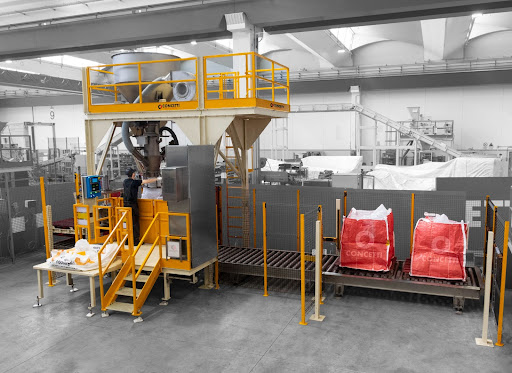In today's fast-paced industrial landscape, optimizing process efficiency is paramount for businesses seeking to maintain a competitive edge. One key aspect of achieving this optimization lies in the accurate measurement and control of materials throughout various stages of production. This is where industrial weighing systems come into play, revolutionizing how industries weigh and package their products.
Concetti weighing machines range includes net weighers and gross weighers, with different systems for product feeding: gravity, belt, screw, or double feeding.
Topics:
- Types of industrial weighing systems
- Importance of industrial weighing systems in process efficiency
- Industry applications
Types of industrial weighing systems
Concetti provides industrial technology that is certified, versatile, precise, and capable of facilitating fast, accurate, and hygienic weighing. Our product range includes net weighers and gross weighers, and we offer a variety of systems for product feeding such as gravity, belt, screw, or double feeding. Our machinery is easily accessible for cleaning and maintenance, which means ensuring high standards of hygiene.
The difference between net and gross weighing systems
It is important to differentiate between net weighing systems and gross weighing systems.
- Net Weighing Systems: in this solution, products are pre-weighed and then discharged into the bag.
- Gross Weighing Systems: in this case, the product is directly weighed into the bag.
Furthermore, there are multiple ways dry materials are transferred when using bagging scales, such as gravity, belt and screw. To determine which is the best method to apply, we should consider the product and its flow features.
- Gravity Feed is suitable forfree flowing products
- Belt Feed is suitable formedium free flowing products
- Screw Feed is suitable fornon-free flowing products
Gravity Feeding Scales
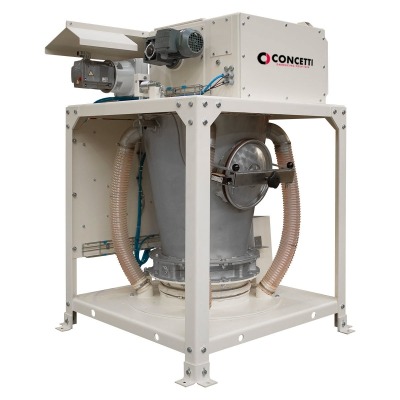
The gravity-feed weighers produced by Concetti enable exceptional weighing accuracy due to the implementation of various mechanical elements and the advanced electronic control system that has been created. The product is transferred to the weighing container using its own weight. To achieve consistency and even flow, the product should possess a high degree of free-flowing characteristics.
Screw Feeding Scales

Thanks to the employed technology and the advanced electronic control system, our screw-feed weighers offer exceptional weighing precision. The product is transported to the weighing container using Archimedes screws, which generate sufficient thrust. Consequently, the screw-feed system is utilized for products that do not possess high free-flowing properties.
Double Feeding Scales
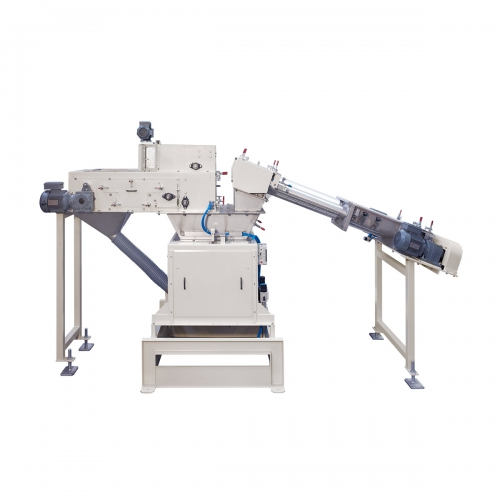
The double-feed weighers produced by Concetti company enable exceptional weighing accuracy. These weighers have been specifically engineered to address unique scenarios where the same weigher needs to handle different products without the risk of cross-contamination or when working with products that exhibit diverse flow characteristics, making it impractical to utilize a single feed system.
Belt Feeding Scales
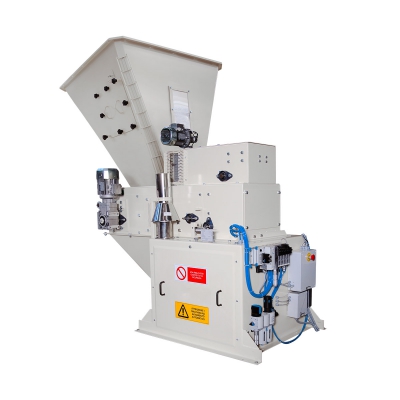
Belt feeders are particularly well-suited for handling medium-flowing floury products, pellets, granules, and flakes.
The weighing container is filled by utilizing a belt conveyor with belt feeders or conveyor belt scales. This method involves conveying the product using a belt conveyor.
Importance of industrial weighing systems in process efficiency
Industrial weighing systems are integral to optimizing process efficiency across industries. By providing accurate measurements, streamlining operations, reducing waste, and ensuring compliance, these systems contribute to increased productivity, improved quality control, and ultimately, enhanced profitability for businesses:
- Accurate Measurements: Industrial weighing systems are designed to deliver precise and reliable measurements of materials, ensuring consistency and reducing errors. By obtaining accurate weights, companies can maintain quality control standards, optimize ingredient proportions, and minimize product giveaways or underfilling. When it comes to high value-added products, for example, “giving away” even small portions of a product at each weighing can become extremely uneconomic.
- Process Optimization: Weighing systems contribute to process optimization by streamlining material handling and packaging operations. With the ability to handle large volumes of materials efficiently, these systems enhance productivity, reduce downtime, and improve overall operational efficiency.
- Increased Productivity: By automating weighing processes, industrial weighing systems eliminate manual tasks and reduce reliance on human intervention. This automation leads to increased productivity, as the systems can operate at high speeds, handle large quantities of materials, and provide consistent results, all while reducing labor requirements.
- Waste Reduction: Accurate weighing systems help minimize waste in production processes. By precisely measuring materials and ingredients, businesses can ensure optimal utilization and avoid over- or under-usage. This waste reduction leads to cost savings and promotes sustainable practices.
- Regulatory Compliance: Many industries are subject to stringent regulations regarding product labeling, packaging, and weight requirements. Industrial weighing systems enable businesses to meet these regulatory standards by ensuring accurate weight measurements, proper packaging, and adherence to legal requirements. This helps avoid penalties, product recalls, and potential damage to the company's reputation.
- Quality Control: Industrial weighing systems play a vital role in maintaining quality control throughout the manufacturing process. By accurately weighing materials and ingredients, businesses can ensure consistency in product formulations, resulting in higher-quality end products. This helps build customer trust and loyalty.
- Enhanced Safety: prioritizing safety by reducing manual handling of heavy materials and minimizing the risk of injuries or accidents. Automation and integration with other machinery create a safer working environment for employees, reducing physical strain and the potential for human errors.
Concetti industrial weighing systems are available in various configurations, allowing businesses to select the system that best suits their specific needs and production requirements. From net weighers to gross weighers, and gravity feeding to screw feeding systems, the flexibility, and customization options enable seamless integration into diverse manufacturing environments.
Industry applications of industrial weighing systems
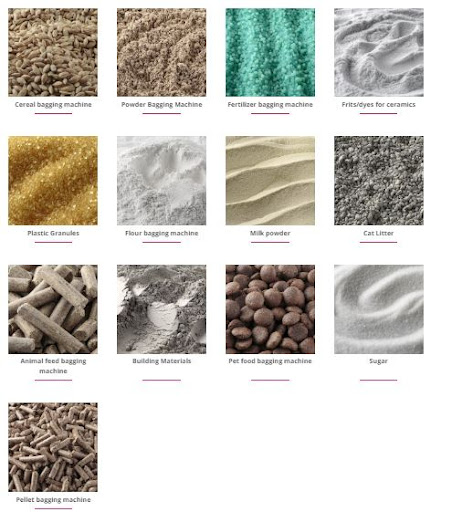
Industrial weighing systems find applications across a wide range of industries and products. Here is what you can package with Concetti weighing and bagging equipment:
- Cereals and seeds
- Powders
- Fertilizers
- Frits and dyes for ceramic
- Flours
- Milk powder
- Granules
- Animal feed
- Cat litter
- Pet food
- Sugar
- Pallet
For each product, we have the most suitable solution and technical support based in the US. That means we can visit your factory to define the technical details and solve the issues in a few hours.

